RAILWAY INDUSTRY MAGAZINE THE
The official magazine of the Railway Industry Association
TRANSPORT FOR LONDON COMMISSIONER,


The official magazine of the Railway Industry Association

seeks strategic partnership with the rail supply industry
HS2 Director explains how the company is responding to recent Government decisions.
RSSB CEO describes how the Board is making rail safer, more efficient and more sustainable.

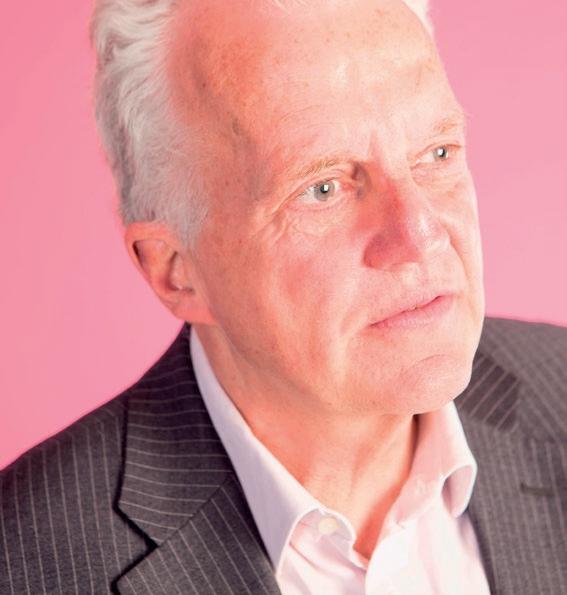
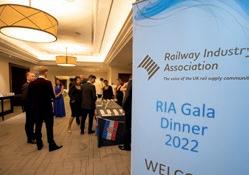





Welcome to the summer edition of the Railway Industry magazine for RIA members, which includes interviews with Transport for London Commissioner, Andy Lord, Aileen Thompson at HS2 and Mark Phillips at the Rail Safety and Standards Board.
We also report on our recent RIA Dinner and Railway Industry Supply Excellence (RISE) Awards, held on 29 June at London’s Intercontinental, Park Lane. Awards were presented to 11 winners – including Andy Lord for ‘Client of the Year’ - and our special guests at the event included Rail and HS2 Minister, Huw Merriman, and Lead Director of the Great British Railways Transition Team, Anit Chandarana.
At the event I had a chance to lobby the Minister and his Department in my speech, and promote a vibrant, growing and increasingly used rail network to railway industry colleagues, and the need for them to join what I call ‘Team Optimism’ at a time when a striking number of politicians, officials and rail players are inexplicably talking the sector down.
The evidence that rail is growing again and that more capacity will be needed in the years ahead to accommodate it is clear and is something we at RIA have been commenting on since the pandemic ended. Freight returned to 100% pre-Covid levels in 2021 (although industrial action has impacted it more recently) and by April this year the daily average for passenger numbers was at 98.3% with it reaching 101-106% on 14 out of 30 days in the month. Revenues too are trending upward, with leisure revenues even higher than pre-pandemic and commuting nudging mid-90%.
In the face of this bounce back, it is a real concern that some people continue to talk down the figures and speak of the future of rail in terms of ‘managed decline’. This is really damaging the railway industry and damaging it right now.
Earlier in June I attended RIA’s Trailblazers Reception, with a diverse group of more than 200 future and existing rail leaders. A common theme of the speeches that night was that we are competing for talent with other sectors, and that rail is a hidden jewel, with so many great jobs and interesting areas to work in.
At the event, figures from the National Skills Academy for Rail were cited, telling us that in rail we need to double our annual apprentice numbers to 5,000 every year and find 150,000 new workers by 2030, if we are to have the workforce we need by 2030. How can we attract that diverse and younger workforce to a ‘hidden jewel’ sector if we don’t ourselves promote the returning strength of the UK rail network? Using lower passenger and revenue figures and caveats simply makes it harder to attract new customers, new workers and
Milda Manomaityte • Innovation Director
Neil Walker • Exports Director
Robert Cook • Policy Director
Rose Garber • Member Relations Director
infrastructure investors into UK rail. We should remember that we - the supply sector – are a huge part of the railway industry’s jobs, GVA and tax revenues, and we are the decarbonisers, levelling-uppers, and the optimists who can play a major part in delivering the increased capacity UK rail will need in the years ahead. As I said at the RIA Dinner, rail is not declining and we need Rail and HS2 Minister, Huw Merriman “to take that message back to the Treasury in no uncertain terms”.
I went on to give Minister Merriman a bucket list of 10 things he could crack on with before the next General Election, including progressing Great British Railways and rail reform legislation, to bring track and train and cost and revenue closer together and incentivise train operators to increase revenues rather than everyone focusing solely on cost. We will be campaigning on this, and all the other issues identified by RIA members in the months to come.
We will have an excellent opportunity to review progress on that bucket list when we gather for the RIA Annual Conference and Dinner on 1-2 November. Minister Merriman, Network Rail CEO, Andrew Haines, and a host of other great speakers will be joining us.
As I write, news has just come in that HS2 Ltd CEO, Mark Thurston, is to step down in September after six and a half years in the role. We at RIA thank him for his strong engagement with us and wish him well in the future. There are now big shoes to fill in the leadership of the HS2 project.
 Darren Caplan Railway Industry Association Chief Executive
Michael Burrell Editor
Darren Caplan Railway Industry Association Chief Executive
Michael Burrell Editor
THE RAILWAY INDUSTRY MAGAZINE IS PRODUCED BY
RAILWAY INDUSTRY ASSOCIATION
Darren Caplan • Chief Executive
David Tonkin • Chairman
David Clarke • Technical Director
Gaynor Pates • Operations Director
RAILWAY INDUSTRY ASSOCIATION
Kings Buildings, 16 Smith Square
London SW1P 3HQ
United Kingdom
T: +44 (0)207 201 0777
E: RIA@riagb.org.uk
W:www.riagb.org.uk
T: +44 (0)20 7089 2622
E: hello@geniumcreative.com
W: www.geniumcreative.com
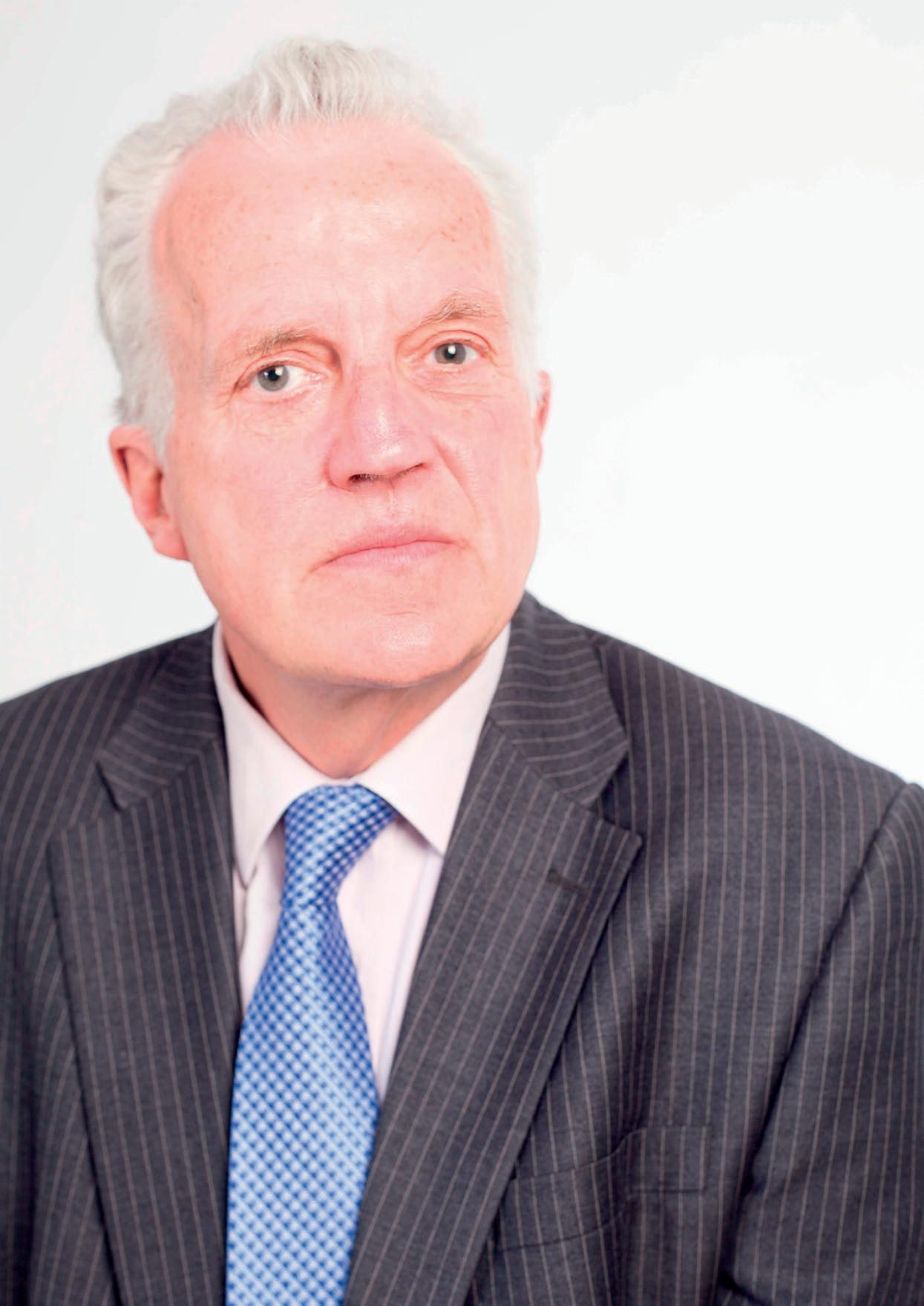 Christian Wolmar
Christian Wolmar
Christian Wolmar
Christian Wolmar
In a forthright and wide-ranging interview, Wolmar also described the creation of Great British Railways as “the wrong type of approach”, said he is “very worried” about Labour’s plans for the railways and criticised HS2 as a project that “seems to have been very poorly run”.
Emphasising that he sees railways as the best form of travel, which deliver huge benefits to society, he was critical of politicians who use an inappropriately narrow business case approach to take decisions on rail
investment, without taking proper account of the external benefits that rail provides to the wider economy, society and the environment.
Asked about Britain’s rail supply industry, Wolmar described it as
“very impressive”, but added that he felt it “under performs”, given the advantage of being based in the country that had invented the railways. He said “this is an industry that should have been and still can be a model for the world because
we invented the railways, and we should have kept some of that advantage. Unfortunately we haven’t”.
He said that, while Britain still has rolling stock manufacturers, today they are largely parts of much bigger international concerns. “We have some major engineering companies that are our own and are very impressive, but I think we under-perform” he said. “There is a lot of potential in this industry, which has not been helped by Brexit, not been helped by consolidation of companies into too big concerns that are multinational”.
He gave the example of “a very impressive firm, which is not British” – Stadler Rail, the Swiss manufacturer of rolling stock, based in a small Swiss town, which, within about 20 years “has suddenly become a very major provider of rolling stock, through having very good products, very great attention to detail. It would be great to see companies like that emerge in the UK”.
Turning to the Government’s plans to create Great British Railways, Wolmar described himself as a critic of the way that the railways had been privatised 25 years’ ago and of the fragmentation that resulted from privatisation and “a great fan of British Rail”. He said the Government’s attempt to “bring it back under something called GBR could be seen as laudable, but I think it is the wrong type of approach. Trying to create something that is ‘a guiding mind’, which implies that it won’t have actual powers to implement what it is guiding about is a mistake”.
“What we need really” he said, “is a reversal to a strong commercially and socially minded organisation that is at arm’s length from the
Government, but which has a healthy relationship with Government, that can run the railways. I don’t think GBR will deliver that”.
Wolmar said British Rail had been “a very good way to run a railway. We can’t return to British Rail, though, because some of the break-up is unrepairable. Nobody is going to think of having a state-owned organisation owning all the rolling stock. The engineering has been split up as well. It would be difficult to bring all that back together, but I do believe, as do most railway people that I talk to, that railways are inherently a single business and should be integrated. There are just too many constraints to have a market. Most of what passes off as private sector involvement in the
industry is ‘pretend capitalism’. It is impossible to create a genuine capitalist model for the railways. To suggest that the railway itself can function like Coca Cola or McDonalds and be a genuine risktaking structure is just a pretence”.
However, Wolmar also declared that he is “very worried about Labour’s plans. I don’t think they understand that Great British Railways is not a renationalising of the railways, but rather is a kind of reconfiguration of the same franchising model. I think the whole franchising model is a mistake. It is a one-sided offer. Franchises can’t really go bust and the risk transfer is always in one

“What we need really is a reversal to a strong commercially and socially minded organisation that is at arm’s length from the Government, but which has a healthy relationship with Government, that can run the railways. I don’t think GBR will deliver that”.Christian Wolmar
direction. So GBR is to some extent a reconstruction of that. I think that Labour has been fooled into thinking it is a renationalisation and it is not”.
He said “Labour needs to focus on putting railway people at the heart of the industry and acknowledging that it is a natural state-run monopoly. It is an inherent part of our infrastructure and is best run at an arm’s length by a government agency, working in concert with the Government, but not at their behest for every single decision”.
Wolmar said “Labour needs to set out a model like that and unfortunately so far, we haven’t seen what Labour really thinks, apart from saying it is going to renationalise the railways and I don’t understand what that means. It is slogan, not a strategy. So I would like to know who is going to run the railways, how are they going to structure it, are they going to be innovative, what ideas do they have on fares, what ideas do they have on investment, how are they going to control HS2’s costs? All these sorts of
questions remain unanswered by the slogan ‘we are going to renationalise the railways’.”

Wolmar described himself as “not a great fan of HS2”. He said he had been “sceptical of it from the beginning. I think it is a project that is inappropriate for this country. We are a relatively small country. We have got very efficient railways already between most of the major centres. It wasn’t really about high speed. It was about capacity. Do we need that level of capacity? Could we not improve the existing railway, particularly south of Rugby? Do we really need this absolutely massive step change in capacity, which is coming at a very high cost?”.
That was his initial thinking, Wolmar said, but it had been further coloured by the fact that “it seems to be a project that has been very poorly run. The other day I bumped into somebody very senior involved in it, who admitted that it is never under control. HS2 Ltd has been let loose. There is no proper control structure
or oversight of it. The contracts are poorly designed. There has been far too much pandering to the nimbies, so you needed to put far too much in tunnels and in cuttings, which is very expensive. Overall, one has to ask, ‘was this the right project?’. In terms of environmental benefits they are few. It will obviously deliver some benefits, but far fewer than is worthwhile for the amount of money”.
Wolmar said “there are always hard choices to be made and pouring all our money into the HS2 project and starving both the existing railway and new investment because of that, is proving a great mistake. I don’t think you can now abandon it, because too much has been spent on it. Some of it looks absolutely fantastic. There is some great engineering, but I still think that it is the wrong project that has been ill thought out and doesn’t have sufficient connection to the existing network”.
Transport for London’s Commissioner, Andy Lord, is seeking a strategic partnership with the rail supply industry to maximise the chances of securing new Government funding for ambitious rail projects, including extensions to both the Docklands Light Railway and the Bakerloo line.
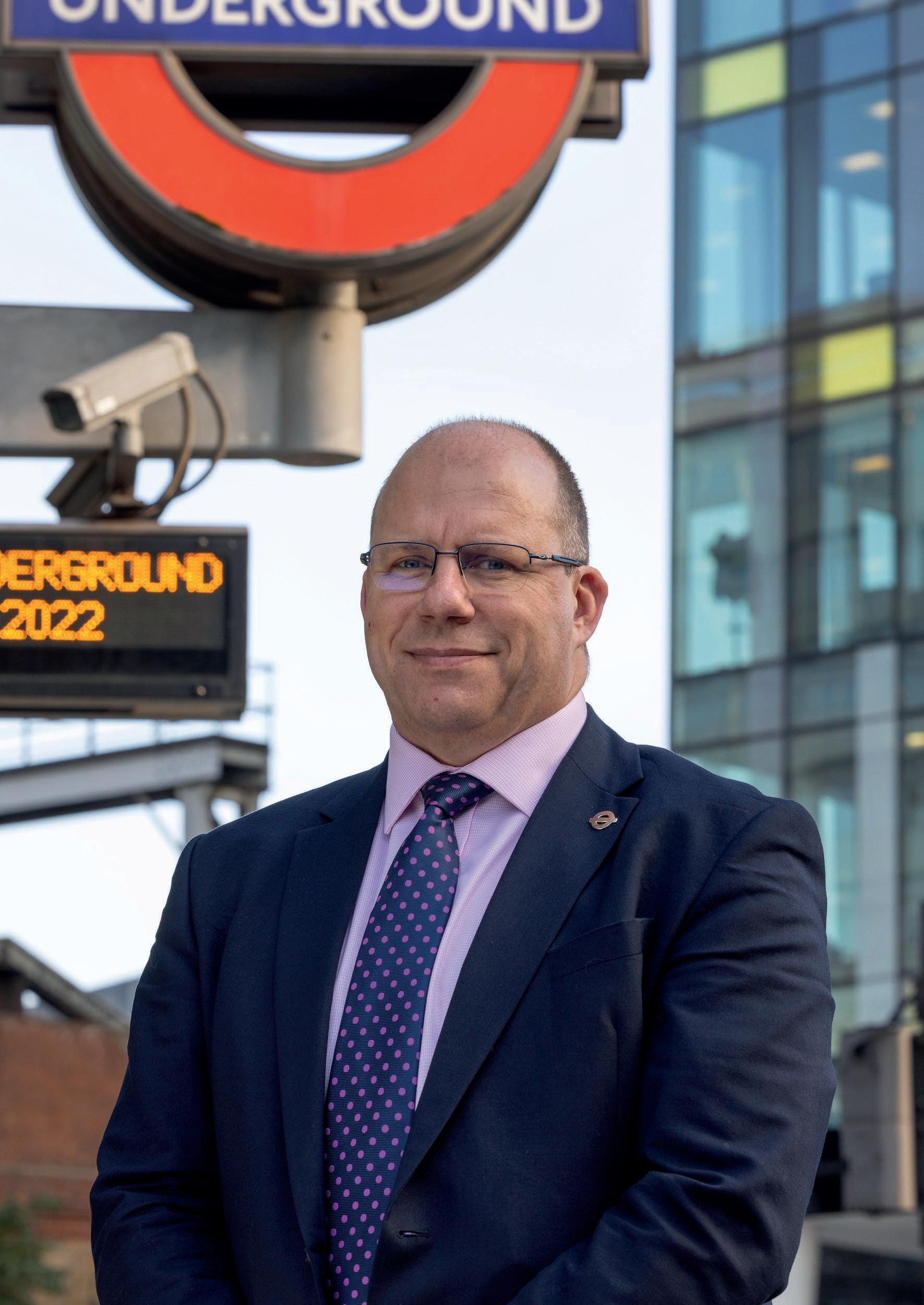 Andy Lord, Commissioner of Transport for London
Andy Lord, Commissioner of Transport for London
Lord told The Railway Industry magazine “Over the last few years I think we have become a bit remote from each other. So I have been really keen to engage through the RIA. We at TfL are really focussed on growing our relationship with the supply chain and partners there, making sure we have a proper strategic partnership with the wider industry, making sure that they understand what the opportunities are within TfL”. He pointed out that Transport for London had recently published its first business plan since 2019, describing it as “a really exciting opportunity for the industry because it now gives some degree of certainty over the opportunities that will arise in TfL over the next three years. We are going to invest another £6bn over that time”.
Lord referenced the new fleet coming for the Piccadilly line, with a number of contracts associated with depots on that line, new rolling stock on the Docklands Light Railway, including a new contract for depot works, and continued implementation of digital signalling on the subsurface network.
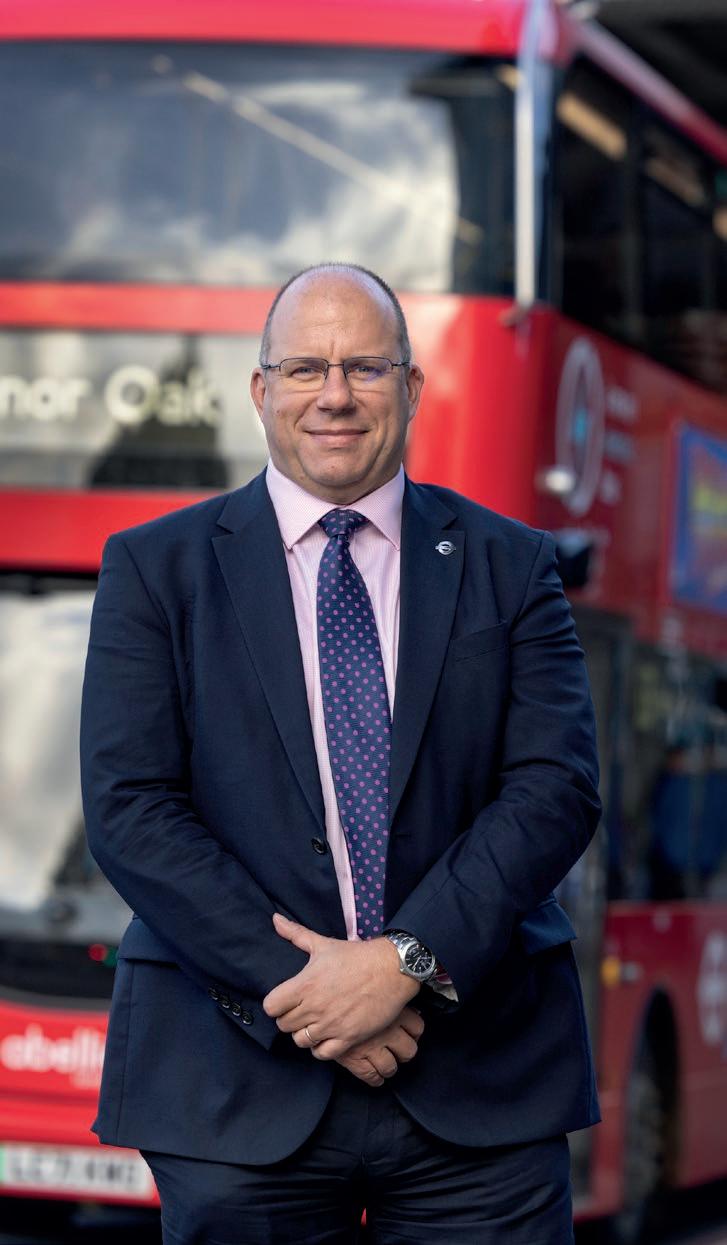
“There are lots more opportunities” he said “and, of course, we are really keen, with the industry, to secure longerterm capital funding because we want to replace the Bakerloo line fleet and the Central line fleet and ultimately deliver our exciting plans to extend the DLR under the river to Thamesmead in south east London and also the Bakerloo line extension. Both of those are huge opportunities for the industry to work with us to find a way for us to deliver those schemes as cost effectively as possible and really add to the
“I am very keen for us to be a bit less specific in terms of what we want to be delivered and allow the industry to come to us with solutions on how it can be done, which I think will improve efficiency and timeliness of delivery”.Andy Lord, Commissioner of Transport for London
value for money that they will deliver and the regeneration that they will both create in south and south east London”.
The Docklands Light Railway scheme would see the DLR extended from Gallions Reach on the Beckton branch with a tunnel under the river to Thamesmead, with new stations at both Beckton Riverside and Thamesmead. The Bakerloo line plan would involve the creation of a new tunnel from the current terminus at Elephant & Castle south-eastwards to Lewisham, with four new stations at Burgess Park, Old Kent Road, New Cross Gate and Lewisham itself. Both of these ambitious plans will require significant new Government funding and Lord is hoping that the industry will work with TfL to win that both by offering better value for money and faster delivery and by supporting TfL’s lobbying of Government.
“We have really all got to focus on how we maximise every penny of every pound we spend” he said. “Historically we have spent about 55 pence of every pound spent on London Underground outside of London and we continue to make a really strong case with the Government around investment in the wider UK. We think, with our supply chain, there is an opportunity there to demonstrate that. There are big headline examples, like Siemens with the new train factory in Goole. All our steel for our track comes from the UK. We need to think, though, how do we deliver better value for money for the taxpayer and the farepayer because we are a public sector organisation”.
Transport for London’s current funding arrangement expires at the end of March 2024. The organisation is seeking agreement on capital funding for the following year and then, ideally, an agreement covering a three-to-five-year period.
Lord said that TfL has been in discussions with the Office of Rail and Road about a possible Network Rail-style control period scheme. He said that would “enable us to have certainty and at the same time give the wider rail industry and the supply chain certainty over the works that we want to develop over that time frame. At the moment I would say I am cautiously optimistic but realistic”.
Reflecting on how Transport for London works with the rail supply chain, Lord said he is keen to learn from the wider industry on how to become more efficient. “I think we sometimes add costs to our suppliers because of the way we specify things. I am very keen for us to be a bit less specific in terms of what we want to be delivered and allow the industry to come to us with solutions on how it can be done, which I think will improve efficiency and timeliness of delivery”.
He suggested that TfL needs to become “a smarter client”, adding “one of the messages that I would give the industry is TfL, and particularly London Underground, have a bit of a reputation of ‘we know best’. My view is we do know how to run railways pretty well, but actually we don’t always know best how to procure things. So challenge us appropriately and, if you think there is a better way of delivering something, talk to us about it”.
Lord was keen to emphasise his desire to say “thank you to all our partners in the industry. We really appreciate the support that you have given us, particularly in terms of lobbying Government for funding. If you can continue to do that, it would be much appreciated. This is very much a partnership. I can’t deliver for TfL on my own and we need the industry to work with us –so, thank you”.
In addition to his extensive remarks on the supply chain, Lord took the opportunity to respond to questions on a wider range of issues. He:
■ confirmed that ridership on the Tube is currently running at about 85% of pre-pandemic totals, with weekend ridership already above those levels.
■ cited business plan forecasts that by the end of the 2023/2024 financial year ridership will have further improved to 90% of prepandemic levels.
■ said he is very hopeful that TfL would soon reach agreements with the unions on pay negotiations and on plans to improve productivity and reduce the cost of operations without redundancies.
■ noted that London Underground is the largest electricity user in London and is currently looking for a power purchase agreement for a green energy supply.
■ described the Elizabeth line, now operating 24 trains an hour during extended peak periods in the morning and evening, as “the jewel in the transport crown and one of the best railways in the world”. He said “we have got through running from Shenfield in Essex to Heathrow and reduced running times for customers travelling from Reading and Heathrow into Paddington. We have now carried over 150m passengers, and the line itself has attracted around 140,000 additional journeys in London each weekday than otherwise would have been the case, which I think 12 months in is a remarkable feat”.
■ concluded that he felt “hugely honoured and privileged to be Commissioner. I am biased, but I think it is one of the best jobs in transport”.
HS2 is working through the practical implications of the Government’s decisions to delay spending on the Birmingham to Crewe leg of the rail route by two years and to postpone construction of the line to Euston station in central London.


Aileen Thompson, Director, Communication and Stakeholder Management, at HS2, told The Railway Industry magazine that the company is working closely with its Joint Venture partners to agree new plans that take into account the rephasing of the project announced by Transport Secretary, Mark Harper, in March.
She said people are naturally concerned about the implications of this change, adding “we are working our way through that now. This is a huge project. You can’t flick a switch, and instantly change direction. It takes time to demobilise our contractors and work through the plans. That is what we have been working closely on with the Joint Venture companies, particularly those around the Euston area and on Phase 2a north of Birmingham”.
Thompson was also keen to emphasise that, despite the rephasing, the Government remains committed to delivering HS2 from Euston to Manchester, even though the first trains in the early 2030s will run only to Birmingham Curzon Street from Old Oak Common in west London. “That is a key message for us”, she said “helping people understand this is going ahead.
We are sticking with the vision and the plan, but we do need to work through the implications of this pause”.
“In line with the Government’s direction” she said, “we are pausing the construction in Euston and around Phase 2 areas and using that time to work out, together with Government, how best to deliver the project in an affordable way that meets the demands of stakeholders”.
Thompson exudes positivity about the long-term future of HS2, the largest infrastructure project in Europe, emphasising “we are 13 years into a 30-year project. There has been a re-phasing of some elements of the programme around Euston and then Phase 2a and b. So for us that means HS2 is going to be delivered differently than originally planned over the next few years and therefore our communications have got to double down”.
“We have got to be really clear and consistent with all of the different stakeholders” she said, “so they understand what it means for them, for their area, for their business and their other supply chain partners. We are in a marathon, not a sprint. So, maintaining that momentum through consistent communications, through our supply chain, through our partners across the country, will help greater understanding of those initial high-speed services connecting Old Oak Common and Birmingham”.
But there was another point that Thompson was also keen to make –“balancing my positivity, I still think it is a sobering reality that many people along the line of our route are going through discomfort and change as we continue to construct the project and we need to respect that. We need to listen to it and act on it”.
“We have to do everything we possibly can”, she suggested, “to make that situation as good as we can for those individuals. For supply chain, of course, and our contractors working alongside the route that is their big important focus - because, unless we can show that respect, listen, deal with and manage complaints, get on top of and quickly resolve queries people have, then we can’t retain the trust and support in the project as a whole. That is very important to us”.
“We have to be empathetic to some of the discomfort and distress that can be caused” she said, “knowing that we have got a number of ways that we can support communities and individuals and we will continue to do that. It can’t just be warm words. It has to be behaviours on the ground. What is it that we need to do better? Do we need to change how we are communicating, our frequency? Are we being simple enough and clear enough about some of the complex works that might be under way?”
“That has to be done at speed” she emphasised “and it has to be done with empathy, understanding and support that communities expect in their area to help them cope with the disruption, the traffic, transport and the impacts that construction can cause. Everyone that works on this project is so alive to that. It is something that we will continue to do until that first train leaves Old Oak Common and then Euston”.
Asked about HS2’s relationships with its vast supply chain, Thompson said “overall, we have worked hard, together with our supply chain partners, to make sure that we have got an open, transparent and productive relationship. We characterise our relationships with our supply chain as collaborative, fair, value for money focussed and with
We are pausing the construction in Euston and around Phase 2 areas and using that time to work out, together with Government, how best to deliver the project in an affordable way that meets the demands of stakeholders.

“Overall, we have worked hard, together with our supply chain partners, to make sure that we have got an open, transparent and productive relationship”.
Aileen Thompson, Director, Communication and Stakeholder Management, HS2
shared values”.
She went on to itemise the varied range of ways in which HS2 communicates and partners with suppliers of every size and type, drawing attention, in particular, to its two recent ‘Meet the Contractor’ events in Manchester, on Civils and Stations and Rolling Stock. These enabled potential subcontract suppliers to meet with HS2 contractors directly, promote their business and understand how to access and win work in the supply chain. Thompson herself also runs regular engagement sessions with the communications teams of HS2’s top 20 suppliers to identify ways in which they can support each other’s

endeavours.
Looking ahead to future supply chain engagement, she said “we are already getting our thinking caps on, for example, for when our systems supply chain partners will come on board in due course, because that will be the next phase after the construction period, and we are
thinking that will be a different set of supply chain partners. How do we work together to get the best out of each other? We are always open to new ideas. We are not the authors of everything. We love the opportunities to consider new ideas that supply chain companies may want to pursue”.
We are always open to new ideas. We are not the authors of everything. We love the opportunities to consider new ideas that supply chain companies may want to pursue.”
That is one of the key themes of the new chair of the Equality, Diversity and Inclusion (EDI) working group, which is jointly sponsored by RIA and Women in Rail.
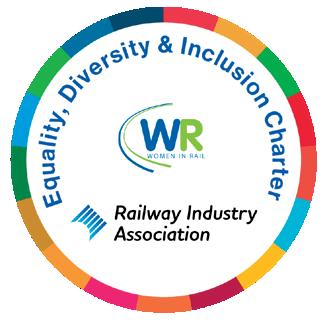
Mandeep Singh, Global Product Marketing Manager for TUV Rheinland, became chair of the group, which champions equality, diversity and inclusion across the UK rail industry, in March this year. After taking on leadership of the EDI Charter working group, Singh says he wants to join the supply chain and the wider industry together with a common theme of improvement for all.
He told The Railway Industry Magazine that, while rail has further to go in delivering better equality, diversity and inclusion, his emphasis is to celebrate what has already been achieved. Doing that, he says, will make the railway industry more attractive to potential new recruits, not least to young people and women – and attracting and harnessing a diverse range of new talent will be key to the rail industry’s future success.
With a lack of diversity in senior leadership roles, Singh’s focus is on reaching out to the people who will lead the industry tomorrow. He is convinced that the face of that future rail industry will look very different from its face today: “The railway in ten years is going to be very different” he said. “The real target here are the future leaders. They will become the new cohort of senior management and will shape the approach that we need”. To become a railway filled with diverse leaders, Singh argues that the pathways to leadership and the flexibility in ideas and inclusion need to be expanded.
Singh first became involved in the working group nearly two years’ ago when he attended a RIA event in Birmingham whose focus was on how SMEs in rail could have better EDI processes and practices. “I quickly realised that there was room here for actually highlighting best practices and encouraging the railway to be the forerunner for EDI practices” he said. Singh started off as a member of the working group, with a particular interest in the rail supply chain – “I felt there was no real guidance or space for the supply chain to focus on the EDI issues that they face” - and was then elected vice chair, and subsequently chair.
Asked what he hopes to achieve as chair, Singh said “The main objective is to create change and leave lasting impact. It is all in the delivery. We have a highly engaged audience of signatories who are looking for guidance and advice. Becoming a signatory is a public statement of intention to deliver better EDI in their organisations. We accept that we may not be able to be the gold standards immediately, but we are able to make noticeable, immediate

Equality, diversity and inclusion has a negative lens applied, but we have had to be critical to address certain issues head on. I do, however, feel there is cause to celebrate.
changes that will make our workplaces better environments”.
Explaining why companies should want to do deliver better equality, diversity and inclusion, he said “there is a well-documented library of research that evidences that companies who have a focus on equality, diversity and inclusion have happy, positive and profitable workforces. Externally, this is also the opportunity to become a more attractive sector. The only real way to fill the looming skills gap is to attract talented individuals. We need to make working for rail exciting and work hard to retain the individuals that we recruit. People come to work and deserve to work without discrimination”.
Talking about the tone of voice that the working group seeks to adopt, Singh said “Equality, diversity and inclusion has a negative lens applied, but we have had to be critical to address certain issues head on. I do, however, feel there is cause to celebrate. Let us celebrate the improvement that has already happened. We have some organisations that are well ahead of the curve in treating people well and focussing on equality, diversity, inclusion and wellbeing”.
“From an HR and talent resourcing perspective” he said “we aren’t getting enough females in rail. We aren’t getting enough ethnic minorities. It is a real shame for the railway. Part of this is due to other sectors not understanding the width and breadth of roles available in the railway. One of the things that we really focus on is going into schools and encouraging younger people into thinking about careers in rail”. Singh stresses that the railway should be representative of the communities it serves and not operating in a silo.
He said “we are looking at the railway
of tomorrow and trying to do things differently. EDI is an opportunity for everyone in the railway to change the world of tomorrow, open more doors for the railway and actively contribute to a better railway and a better society. That is the exciting challenge we are undertaking”.
Describing the working group’s methods of operation, he said that there is a monthly Charter signatory forum where presenters from around the railway share best practice – “it could just be as simple as a ‘copy and paste’ into your organisation, if you don’t know where to start. The monthly forum is a community of people who learn, share and discuss”.
With RIA and Women in Rail, the group hosts events covering a whole range of topics – Singh gave the example of a recent neurodiversity workshop, including a guest speaker who described how his autism affected his role as owner of his own business. The group is also working on an industry-wide survey of EDI to understand both the positive changes that have already been made in the railway
and the opportunities for further improvement.
He emphasises that the working group is not “an echo chamber” but brings together a wide range of people with different characteristics and experiences. Their primary focus is to offer practical support to people across the rail sector who want to do EDI better but may not know how to put that into practice.
Over 200 rail companies and organisations are already signatories of the EDI Charter, and the working group seeks both to help them and to encourage others to join. “Any organisation can become a signatory of the Charter” Singh said, “becoming a signatory doesn’t mean you already have the best EDI in the world. Rather it is journey and a collaborative journey that is made from relationships”.
If you would like to learn more about the Equality, Diversity and Inclusion Charter, please contact info@edicharter.co.uk.
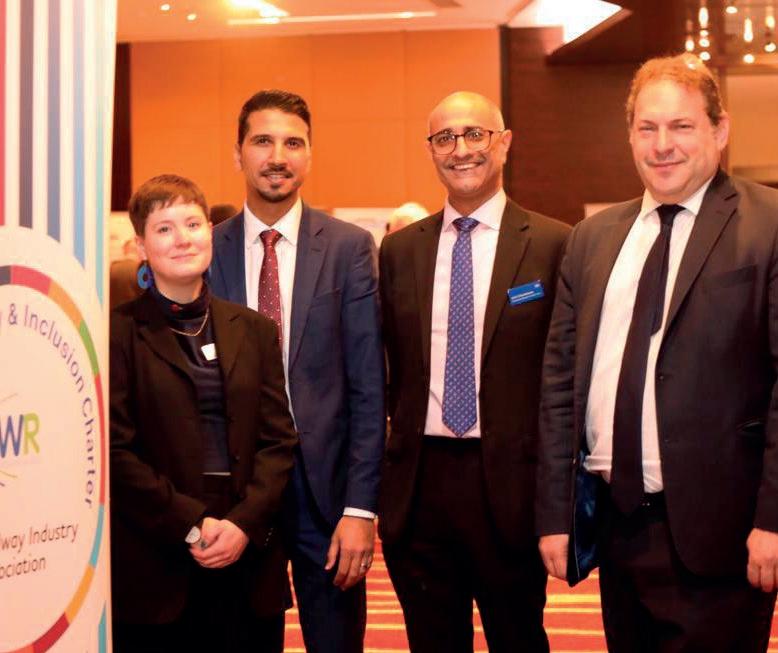
It is said that there are three types of people, there is the ‘glass half empty or a glass half full, type of person, then there are the engineers who point out that we have the wrong size of glass.’ While this is a slightly humorous take on an old saying, there is perhaps more than a grain of truth in the statement.


Engineering can be a demanding profession that often requires long hours with high levels of stress. Being focused on meeting deadlines, working on complex projects, and solving technical problems, can leave little time or energy for engineers to prioritise their own mental health and well-being.
The nature of engineering work often involves dealing with technical problems and solutions, which may make it easier for engineers to overlook the importance of emotional intelligence and empathy. Senior managers may be more comfortable working with machines and systems rather than people and emotions, which can lead to a lack of awareness and understanding of mental health issues.
Sadly, mental health is still stigmatised and seeking help is often seen as a sign of weakness. Many feel pressure to appear strong and capable at all times, and admitting to struggling with mental health could be perceived as a failure or a hindrance to their career.

It is important to note, however, that good mental health is crucial to overall well-being and productivity, and addressing mental health issues can actually improve performance and job satisfaction. Encouraging open dialogue about mental health and promoting mental health resources and support can help to break down stigma and create a healthier workplace culture for all. The best time to start having this open dialogue is day one of a person joining a company, but if that hasn’t happened, then the next best day to
start a dialogue is today.
Talking can be a powerful tool for people suffering from stress because it can help individuals process and manage their emotions, gain perspective, and find solutions to their problems.
When someone is experiencing stress, they may feel overwhelmed and stuck in their thoughts and emotions. Talking to a trusted friend, family member, mental health professional, or one of the Railway Mission’s chaplains can provide a safe and supportive space to explore and express these feelings. Verbalising emotions and thoughts can help to release pent-up tension and provide a sense of relief.
Talking can also help individuals gain a new perspective on their situation. By sharing their experiences with someone else, they may be able to see their situation from a different angle and gain insights they had not previously considered. This new perspective can provide a sense of clarity and help the individual better
Encouraging open dialogue about mental health and promoting mental health resources and support can help to break down stigma and create a healthier workplace culture for all.
understand their own emotions and reactions.
Talking with someone, like a chaplain, can help individuals find and explore practical solutions to their problems. By sharing their concerns with someone else, they may be able to explore ideas and come up with strategies to cope with stressors and manage their stress in a healthier way.
It is widely accepted that a company that prioritises mental health and well-being, creates a positive and supportive culture that values employee health and safety. This, in turn, can increase employee loyalty and attract the most talented people to the company.
Engineering companies should invest in the mental health and wellbeing of their staff for several reasons. By investing in mental health, employees who feel supported and valued by their employer are more likely to be satisfied with their job and remain with the company for longer. This can lead to increased productivity and reduced turnover costs, by improving morale, reducing absenteeism, and leading to more innovative and effective problemsolving.
Of course, employers have a legal and ethical responsibility to provide a safe and healthy workplace for their employees. This must include addressing mental health concerns and providing support for employees who may be struggling. But there are wider social and societal benefits to improving mental health engagement; companies that prioritise the mental health and well-being of their employees can have a positive impact on society as a whole, by reducing the stigma around mental health and setting an example for other employers to follow.
Railway Mission has a good
working relationship with Network Rail, Train Operators and British Transport Police. But as an industrial chaplaincy, it is right to encourage a wider engagement within the Railway Industry Association member companies, as we can be an important part of your company’s well-being toolkit.

Railway Mission chaplains provide spiritual and emotional support to employees regardless of their religious beliefs. This can include listening, offering guidance, and providing a safe and confidential space to discuss personal or workrelated issues.
Chaplains can help resolve conflicts in the workplace by mediating between employees and offering a neutral perspective on the situation,
helping to reduce stress and improve communication between colleagues.
In times of crisis, such as accidents or fatalities in the workplace, chaplains can provide emotional and spiritual support to employees and their families. This can help to reduce the impact of the crisis on employees’ mental health and wellbeing. Following a fatal accident at Gatwick Railway Station, Gavin Bye, Costain Group Safety, Health and Environment Director, recently wrote to Railway Mission to say, “the Chaplain’s support in the aftermath of the incident received amazing feedback from the team and was particularly appreciated as we were struggling to get our employee assistance provider to mobilise in the way we expected them to.”
It is widely accepted that a company that prioritises mental health and wellbeing, creates a positive and supportive culture that values employee health and safety. This, in turn, can increase employee loyalty and attract the most talented people to the company.
By including industrial chaplaincy in their well-being toolkit, engineering companies demonstrate a commitment to the well-being of their employees and create a positive workplace culture that values employee mental health, as well as mental and spiritual well-being.
Railway Mission chaplaincy doesn’t replace the company’s chain of care, but it is complementary to other well-being initiatives, such as employee assistance programmes and mental health resources. Chaplains can work with these initiatives to provide a holistic approach to employee well-being.

In summary, the Railway Mission’s industrial chaplaincy service can provide spiritual and emotional support, assist with conflict resolution, crisis management, and workplace culture improvement, as well as work in collaboration with other well-being initiatives. By including chaplaincy in their well-being toolkit, Railway Industry Association companies can demonstrate a commitment to the well-being of their employees and create a more supportive and caring workplace culture.
Chris Gibb while Managing Director of Virgin Cross Country Trains, said of the financial support the company provided to the Railway Mission chaplaincy, “I see this contribution as part of our insurance policy.” This was because having a confidential, independent and impartial support network that has the agility to respond quickly is so important in today’s high-pressure world. The chaplaincy may not be able to visit your company or staff regularly, but we are there for you and your team when you call; because even if your company doesn’t support our chaplains financially, our chaplains will still support you, because people are important.
Liam Johnston is Executive Director of Railway Mission.
“Emotional and spiritual support in a time of crisis is one of the most valuable things you can give to a person. The Railway Mission provides this help to railway staff, the British Transport Police and the travelling public – taking care of the mental welfare of our railway family both day-today and following traumatic incidents.”
Lord Peter Hendy CBE, Chair Network RailMark Phillips
Helping the rail network to cope with extreme rainfall, using artificial intelligence to help reduce train delays caused by ‘leaves on the line’ and helping freight train operators to run longer trains at no extra cost
– these are three recent examples of how the 20-year-old Rail Safety and Standards Board is working to make Britain’s railway safer, more efficient and more sustainable.
Phillips, who joined the RSSB as CEO in 2016, said that the Board’s independent view on the industry’s safety performance had “driven good progress” since its establishment in 2003, following the Cullen inquiry into the Ladbroke Grove rail crash in 1999. By providing the place for a fragmented rail sector to collaborate on standards and, more recently, to develop leadership in sustainable rail, he said that the RSSB has helped the industry to thrive and to adopt new technologies.
Focussing on the Board’s most recent work, he highlighted:
■ the development of an operational planning tool for Network Rail that will help it to deliver the most effective operational responses to the risk of earthwork collapse
following extreme rainfall. The tool, currently being piloted in the North West and Central regions prior to its nationwide roll-out, evaluates the risk of derailment, risks from speed restrictions and economic impacts, providing a more effective operational plan than blanket speed restrictions.
■ collaboration with the University of Sheffield to develop a tool using artificial intelligence to help predict low adhesion track conditions, the seasonal challenge associated with ‘leaves on the line’. Such conditions are a serious safety and operational issue for the rail industry, costing around £350m a year and causing delays, as well as sometimes resulting in station overruns and signals being passed at danger. The project will use artificial intelligence to
analyse data and high-resolution video footage to deliver more accurate predictions about friction at the wheel-rail interface. An online tool that will generate friction predictions for anywhere on the network will be available this autumn.
Beyond electrification, the RSSB is also working on standards for hydrogen fuelled trains and battery operation taking into account the constraints involved in both.
■ completion of a research project, funded by the Department for Transport, which will mean that freight train operators can safely haul more goods wagons per train than historic practices allowed, improving both their environmental impact and financial efficiency. The research has enabled existing couplers, which connect freight wagons, to safely connect more load without the need to upgrade or undertake a detailed engineering assessment. A 235-mile journey with 19 wagons can be increased to 23 wagons, delivering projected annual savings of £364k. The rail industry is now implementing the new ratings and identifying routes suitable for longer freight services.
Phillips emphasised that, while the RSSB has continued to evolve and add new services, it still plays the role envisaged for it by the Cullen inquiry, as an independent not-forprofit membership body bringing together the different parts of the rail industry to improve safety and to discuss changes in standards. The Board encompasses infrastructure managers, passenger train operators, freight operators, the rolling stock owners and leasing companies, suppliers and contractors.
He spoke positively about the contribution of RIA, representing the rail supply industry, giving as an example the recently updated standard on AC electrification. Phillips said “where there are particular areas that are important that may require changes then that representative voice from collective members can be helpful. So, as an example, we updated the AC electrified line standard last year and RIA was able to provide some useful inputs from its members into our work on that – because, ultimately, the goal of many parts of the industry is to see more electrification.
It obviously benefits sustainability, it benefits cost reduction, it benefits the supply chain and so RIA was able to provide some useful input into that”.
The Board has predicted that the revised standards for AC electrification systems and rolling stock will help the rail industry save millions of pounds when delivering new electrification schemes and provide confidence that trains and the electrification infrastructure are compatible with each other. It says that the standards will help the industry reduce complexity and avoid unnecessary cost whilst maintaining safety and delivering good operational performance.
Beyond electrification, the RSSB is also working on standards for hydrogen fuelled trains and battery operation taking into account the constraints involved in both.
For example, Phillips said, “putting a hydrogen-propelled train into a long tunnel and managing the safety aspects of that. Thinking about locations around the network where hydrogen might be stored to fuel trains. How might you recharge a battery train? You can do it in a depot, but you will probably need to top it up in the course of its journey, so will that be done by a transponder on the track, or will it be through an overhead device.? All those things need standards applied to them and they also require risk assessment. We can provide some technical answers to the industry to manage those issues”.
While the RSSB was established as an NHS-style ‘free at the point of use’ technical adviser for its members, in recent years it has also started to do bespoke commercial work for members and others both in the UK and internationally. Phillips said that this commercial function now accounts for 25% of the RSSB’s
total turnover and is paying for an increased range of services for members, including a health and well-being team, a new data insights team and a Futures Lab focussed on future technologies – “all of those people are paid for by the surplus that we have generated from our commercial operations”.
Looking ahead to the creation of Great British Railways, Phillips said that the Williams-Shapps plan was very clear that there is a need for the RSSB going forward. It would remain independent, because, he said “you do need to have this separate place where all the parties in the industry can come together to share safety data without the fear of reprisal or contractual issues with those that they contract to provide a service for. We can provide that independent view as to how they are managing safety and give advice in terms of how they might improve. That is the expectation set out in the Williams-Shapps plan”.
On the Labour party’s rail nationalisation proposals, he noted that the former Shadow Secretary of State for Transport, Andy McDonald, had proposed putting RSSB into the nationalised body.
But Phillips said “RSSB are independent and entirely neutral, so will continue to work with whichever party is in Government. No matter who is in Downing Street the role of RSSB and the importance of safety does not change. The industry is fragmented and will remain so, even if a Labour Government brings together track and train you will still have private freight companies, private rolling stock owners, supply chain and contractors. So, you will still have many players. You will still have Transport for Wales and Transport Scotland and regional Mayors with regional needs. We will continue to push the benefits of the RSSB, as recommended by Cullen, because those issues won’t change”.


70 rail business leaders wrote to the Prime Minister, Rishi Sunak, urging him not to delay in bringing forward legislation to enact the Government’s rail reform plans in the coming Parliamentary year. Legislation is needed to create Great British Railways (GBR), which will bring track and train operations together within one body.

Agreement for Trans-Pacific Partnership (CPTPP), a vast free trade area of 11 countries spanning the Indo-Pacific.

The historic agreement follows two years of intense negotiations by the Department for Business and Trade and puts the UK at the heart of a dynamic group of economies, as the first European member and first new member since CPTPP was created.
The Department for International Trade launched a consultation on an enhanced trade deal with South Korea. The consultation requested input from businesses and the public on which aspects of our current trading relationship with South Korea should be improved.
The Department for Transport published its post-Covid national rail passenger figures on Wednesday 10 May, showing a record post Covid high daily average of 98.3% for the month of April. Of the 30 days in April, 14 days registered 101% to 106%, and only four days saw less than 90% (88%) on the first four days of the month.

Latest figures from HS2 show that tier two subcontracts totalling £7.9bn have been awarded to over 2,000 UK-based companies, with SMEs securing £3.6bn worth of orders – a 45% share.
Businesses in every UK region have won work supporting HS2’s construction, with the East of England, West Midlands, Greater London and the South East each amassing over £1bn worth of contracts.
HS2 has taken a further step forward in decarbonising the constructure sector, completing a world first by installing four 30-metre deep piles on a London site using a hydrogen dual-fuel piling rig.

The trial took place as part of work done in partnership by ULEMCo and Cementation Skanska, working with the world-leading Business Research Establishment (BRE), funded through the BEIS Phase 1 Red Diesel Replacement competition.
The UK has joined the Comprehensive and Progressive
The Department for Levelling Up, Housing and Communities have published plans to reform the Nationally Significant Infrastructure Projects regime. This will include a ‘fast-track’ service to support early meaningful engagement and potential resolution of differences between key parties.
TransPennine Express’s efforts to become a sustainable and environmentally friendly train operator have been recognised by the Carbon Literacy Trust, which has said that the operator is Carbon Literate. TransPennine Express is the first train operator to attain this level in the UK.

TransPennine Express is now being run by the state after ministers announced that the rail company would not have its contract renewed.
The Transport Secretary, Mark Harper, said the northern rail network would be run by the stateowned operator of last resort after passengers experienced disruption and cancellations.
The Chartered Institution of Highways and Transportation (CIHT) reaffirmed the urgent need for the National Transport Strategy for England. CIHT believes that the National Transport Strategy for England should identify critical national objectives and the transport development direction in England with a 10–20-year perspective.
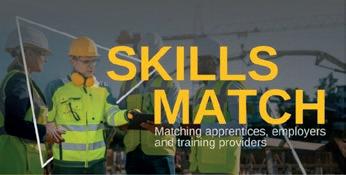
National Skills Academy for Rail (NSAR) launched a Skills Match to proactively support rail employers on apprenticeship recruitment. Skills Match was created to help solve the severe shortfall of workers urgently required across the rail industry and introduce new talent and skills needed to modernise the industry.
The rail industry has a low apprenticeship recruitment rate comparative to other industries. Around 2,500 apprentices join the
sector each year, NSAR estimates that the UK’s rail industry requires at least 5,000 new apprentices per year to meet demand for its current work pipeline and to replace the sector’s ageing workforce.



The company delivering Britain’s new high speed rail network has launched an innovation competition to bring new thinking to the installation of key rail systems infrastructure including track and signalling on the new line. HS2 Ltd is looking for companies of any size and industry to enter its competition and propose new ideas to automate rail systems installation in four key categories: tunnel systems; signalling; slab track; and cabling.
The action is part of their ongoing dispute about pay and conditions. Strikes will be held on Thursday 20, Saturday 22 and Saturday 29 July. Members of the RMT union will be taking action at 14 rail companies.
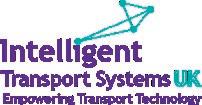
Intelligent Transport Systems UK (ITS) connect, influence, support and challenge. Ultimately, they empower transport technology. ITS provide a national platform to support the roll out of technology for a cleaner, safer and more effective transport network, both at home and abroad.
Onwave
Onwave’s industry experience has helped them to develop a range of solutions to help improve safety and operational performance by implementing the right technologies supported by a resilient and secure connectivity service
DW Windsor
DW Windsor is for organisations and professionals developing external environments. They are a proud British company who manufacture products that look good and perform brilliantly. With a rich heritage of skills and expertise, they are powered by people who share a commitment to the delivery of outstanding solutions.


Capita
Capita is a consulting, transformation and digital services business. Capita partner with clients and provide them with the insight and cutting-edge technologies that give time back, allowing them to focus on what they do best and making people’s lives easier and simpler.

IKOS
The vision of IKOS is to become the leader in technology consulting in the railway sector and a benchmark in the field of energy. IKOS specialises in the railway and energy sectors and their goal is to develop highly technical expertise by specializing in niche domains.

Lowery
Lowery has a reputation for quality and service that goes back over 70 years, enabling them to offer our customers proven experience and knowledge. They operate as a Principal Contractor, undertaking Signalling, Telecoms, High Voltage, DC, Low Voltage electrical installations, Track (P-Way), and civil engineering works of all types, whilst continually responding to market changes and developments.

Inflect Partners is a strategic communications and business transformation consultancy focused on the challenges of the future. They are a fully integrated consultancy blending experience and networks to help you achieve your objectives.

Barrow Hill Roundhouse is the last surviving railway roundhouse in the United Kingdom with an operational turntable. Built in 1870, it was threatened with demolition in 1991 when the site was closed by British Rail. It was saved by a group of dedicated volunteers who have transformed it into a unique railway museum and events venue.
ERG International Group is a highly respected engineering, construction and project management contractor of major infrastructure assets. Since incorporation in 1972, they have completed numerous significant projects in the power, water and transportation sectors.


Premier Rail Pits’ prefabricated steel maintenance pits make a significant contribution towards enhancing workshop productivity, offering a safe, welllit environment for your technicians. Premier Rail Pits arrive on site with the access steps, lights and air points built in, and pit installation times are cut by up to 70% compared with reinforced concrete.
Wago
Wago have made maintenance-free connections in local and long-distance transport possible with spring pressure connection technology. They offer additional comprehensive solutions.

The STC INSISO team are experts in developing and delivering software and services that help businesses in a range of industries, to control risk and assure operations. From their UK headquarters, STC INSISO supports clients in leading organisations within sectors including the international energy industries, rail, construction, technology, and utilities.

Digital Transit Limited

Digital Transit Limited (DTL) is a technology business that specializes in condition monitoring and machine vision, safety critical software assessment, cybersecurity support and training. DTL have recently provided significant solutions, consulting and training in the UK, Australia, New Zealand, USA, China and Singapore.
Spatial
A global leader in providing software, solutions and business applications for managing location and geospatial data. Trusted by 1,000+ organisations to build strong data foundations, unlocking the value of location data for confident and informed decision-making.

Croftstone
Croftstone is an award-winning multi-disciplinary management consultancy providing end-to-end support for large-scale infrastructure programmes. Their vision is to see a world where communities are better connected, where opportunities are more accessible, and where potential is more easily reached.
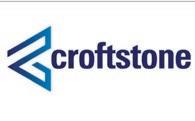
KH Engineering

KH Engineering Services provide a comprehensive range of electrical and mechanical services covering London, the South East and the Home Counties. Through investment in their client’s business culture KH Engineering strive to provide high quality solutions, to a broad range of customers, which are innovative and cost effective.
Over the past 100 years, British manufacturing company Craig & Derricott have specialised in the design, manufacture and overhaul of rolling stock components. Their rail rolling stock range includes LED lighting, rotary switches, driver key switches, panels, footswitches, passenger communication devices and a bespoke engineering service for project driven designs.


Lenz Ltd believe that the future of sustainable mobility is dependent on realizing the potential of the existing infrastructure network. They cultivate cutting-edge AI and ML technology into pragmatic and proportional solutions to respond to well-identified operator, freight customer and passenger needs.
Fujikura
Founded in 1885, the Fujikura Group is best known for a long and innovative history in the field of fibre optics. The Fujikura name is synonymous with fibre optic fusion splicers, and they are proud to have become the world’s leading supplier to telecommunication companies around the globe.

A market leader in electrical safety, Bender UK has a proven track record in the rail industry with more than 1,000 rail signal protection systems installed across the UK’s rail networks over the last two decades. Bender UK ensure maximum availability of rail networks across the UK, preventing downtime to services and maintaining operational efficiency.

INSIGHTS from RIA Directors
Gaynor Pates Operations Director
London’s Transport Commissioner, Andy Lord, picked up the ‘Client of the Year’ award on 29 June at RIA’s Railway Industry Supplier Excellence (RISE) Awards Dinner.
The award goes to an individual whom the RIA Board consider has done the most to deliver rail in their area and build strong supplier relationships over the year.
Lord took on the role of Transport Commissioner on an interim basis last October and was confirmed as London’s permanent Commissioner by the Mayor of London, Sadiq Khan, and the Board of Transport for London on 7 June.
RIA Chief Executive, Darren Caplan, said Lord’s award was for “achieving a strong initial funding settlement for rail in the capital, ensuring friendly passenger services during events like the Queen Elizabeth II
funeral and the recent Coronation, achieving the full running of Crossrail and providing new rolling
stock for the DLR, and getting the Underground restored so well postCovid, with patronage returning to record post pandemic levels. Truly exceptional achievements for a first year in office!”
Declaring himself deeply honoured, Lord said “The rail supply chain plays a crucial role in keeping London moving, and we at Transport for London look forward to continuing our constructive relationship with RIA over the coming months and years”.
An independent judging panel of senior industry figures picked the winners of ten categories after a record number of 90 entries were submitted. Caplan said the awards
“truly demonstrate the value of the rail supply chain. The industry faces a bright future, with suppliers not just delivering transformational rail projects to serve a growing number of passengers and freight customers, but also creating jobs and generating economic growth in the process”.
The award winners were L.B. Foster (Equality, Diversity and Inclusion), Network Rail partnered with Rail Aid and seven other suppliers (Environmental, Social and Governance), Connected Places Catapult partnered with Network Rail (Safety), Angel Trains partnered with Transmission Dynamics (Partnership), Revolution VLR (Innovation), WSP (Application of Digital Technology), Croftstone (SME Growth in Rail), Xrail (SME Exporter in Rail), Josie Cheeseman, WSP (Rising Star) and Pradeep Vasudev, WSP (Employee of the Year).


The RISE awards judging panel consisted of Robert Ampomah (Chief Technology Officer, Network Rail), Dyan Crowther (Chief Executive Officer, HS1 Ltd), Gareth Evans (Head of Rail Technology, Network Rail), Rachel Fullard (Service Analyst at Rail Delivery Group and former EDI Charter working group chair), Shamit Gaiger (Managing Director, West Coast Partnership Development), Jo Lewington (Chief Environment and Sustainability Officer, Network Rail), Klara Ludinova (Innovation Lead –Rail, Innovate UK), Toufic Machnouk (Director, Industry Partnership for Digital Railway, Network Rail), Justin Moss (Head of Business Development, Electrification at Siemens Mobility, Rail Infrastructure and Chair RIA North), Ian Prosser CBE (HM Chief Inspector of Railways and Director of Railway Safety, Office of Rail and Road), Wendy Richards (Railways Infrastructure Lead, Department for Business and Trade) and Fi Westcough (Chair, Young Rail Professionals).

The rail network in the UK is more than just tracks and trains; it’s a catalyst for economic prosperity, community connectivity, and environmental sustainability: a crucial element in addressing grander challenges like productivity, decarbonisation and levelling up. As the passenger numbers grow and the government sets forth ambitious targets, including the removal of diesel-only trains and achieving Net Zero by 2050, substantial investment in rail infrastructure is becoming a pressing need.
However, at a time of constrained fiscal space, relying solely on public funding is no longer an option to meet these demands. With the UK’s rail industry at a critical juncture, it is time to harness the potential of private investment to reduce the upfront cost of building the rail infrastructure that can deliver for passengers and freight both today and in the future. RIA has recently published a discussion paper on How can the UK railways secure more private investment?
Deploying private investment to support transformative projects is far from a novel idea. From the Metro Tunnel Project in Australia to the federal motorways in Germany, public-private partnerships are used around the world to build transport infrastructure. In the UK, private finance is being successfully used in the rolling stock market, securing over £4.5bn of investment over 20162022 1 and significant parts of today’s freight network have also been privately developed.
In contrast to the rolling stock
market however, there is very little private finance or funding in other parts of the railway, despite repeated government policy commitments to increase this. Data from the Office of Rail and Road shows just 10.5% of investment in new infrastructure is from private sources, with the majority in rolling stock, and a small amount of investment in stations and track and signalling2. Pockets of private investment exist in the wider network - an inspiring instance is the Docklands Light Railway extension to Lewisham by the private sector,
an asset which around 25 years later is passing back to Transport for London, having been largely privately funded, but now something that is there for future generations.
A rough estimate of the UK rail infrastructure investment gap, provided by Global Infrastructure Outlook, is a £4.12bn annual gap (equivalent to about 0.15% of UK GDP), rising to £112bn cumulatively over time 3. Leveraging private finance could help bridge the widening gap and facilitate much needed renewals and enhancements needed on the UK rail network.
To unlock the potential of private investment in the rail sector however policy makers must address several challenges. The current complex and opaque system lacks the transparency and certainty that the private sector requires. We outline four key asks of the UK government to overcome these challenges:
1. A clear government policy on rail and private investment: There is currently no coherent government policy that provides the market with the clarity and certainty it needs to attract more private sector investment in the UK rail network. Establishing a clear policy will provide a framework for private investors and encourage their participation.
2. More pathfinder projects and standardised approaches: Rail infrastructure projects can be complex, which can involve a range of bespoke risks, for both public and private sectors, which means that investment schemes often need to be bespoke. Introducing projects that serve as proof of concept using less complex schemes could provide frameworks to replicate for future investments. More pathfinder projects and standardised approaches must be implemented to streamline the investment process and foster
innovation in the sector.
3. Intelligent market engagement and a targeted review of procurement practices: There is a real opportunity to harness private sector innovation, but to unlock this the public sector must effectively engage with the private sector. This requires the public sector to effectively collaborate with the private sector, adopting an “intelligent client” approach to procurement and considering the costs incurred by private entities during the bidding process.
4. Fair comparison of the costs and benefits of private finance with public borrowing: A successful railway needs to look at the whole life cost of its decisions. To ensure the comprehensive evaluation of costs and benefits
in private finance compared to public borrowing, the government should enable a fair comparison.
With successful examples within the UK and around the world, there is no shortage of evidence that well-managed public-private partnerships can successfully deliver infrastructure projects. The UK government must demonstrate genuine commitment and adopt a fresh mindset if we are to explore more imaginative approaches for constructing rail schemes. There is a real opportunity for government to tap into the expertise and resources of the private sector to bridge the investment gap and propel the rail network towards a more sustainable and efficient future.
1. https://dataportal.orr.gov.uk/media/2162/rail-industry-finance-uk-statisticalrelease-202122.pdf
2. https://dataportal.orr.gov.uk/statistics/finance/rail-industry-finance/table-7290-privatesector-investment-in-the-rail-industry-excludes-network-rail-investment/
3. https://outlook.gihub.org/countries/United%20Kingdom


A rough estimate of the UK rail infrastructure investment gap, provided by Global Infrastructure Outlook, is a £4.12bn annual gap (equivalent to about 0.15% of UK GDP), rising to £112bn cumulatively over time.David Clarke Technical Director
RIA has started work on a rolling stock strategy to demonstrate the need for early decisions on investment.
Unless decisions are made very soon, new build and refurbishment facilities will be empty, given that the last rolling stock order is already more than 1,200 days in the past.
The RIA team are gathering data on rolling stock and decarbonisation to provide the evidence base for the RailDecarb23 campaign.
We have already published an audit of progress against the Government’s commitments in the 2021 Transport Decarbonisation plan. That report clearly showed that
rail is falling behind other transport modes.
We have made arrangements to ensure that all of this work is guided and informed by input from RIA members. A steering group of members has been set up to guide the RIA team’s work on the rolling stock strategy and to ensure that we will be well-placed to offer a credible alternative to challenge the Great British Railways strategy to be more ambitious.
Meanwhile, the RIA technical function has also been busy on
both infrastructure and track and signalling and telecommunications.
In June we delivered a one-day supplier conference on the SPEED Industry Partnership, which seeks to implement Network Rail’s project SPEED, which is designed to cut the amount of time it takes to deliver infrastructure projects and reduce cost. The following day we took part in a linked conference to introduce the train operating companies to the SPEED programme.
We also worked with RIA’s policy team to prepare briefings on
Network Rail’s Control Period
7 (April 2024 to March 2029) strategic business plans, which cover operation, maintenance and renewal of the railway in England and Wales - but not infrastructure enhancement projects, which would be covered by the long-awaited Rail Network Enhancements Pipeline (RNEP). In addition, we provided an opportunity for Network Rail regions to brief members of RIA’s Infrastructure Group.
The Network Rail strategic business plans confirmed strong support for the transition to the European Train Control System (ETCS), the signalling and control component of the European Rail Traffic Management System. However, we continue to be concerned that the volumes look insufficient to sustain the development of the necessary new skills and capability. June saw the first meeting of the Digital Signalling Industry Champions Council, which brings together representatives from across industry, including Government and suppliers. The Council was briefed on the proposed delivery plan for ETCS rollout.
Looking ahead to the autumn I would like to encourage members to participate in our meetings programme.
This includes:
■ a signalling and telecommunications group meeting (12 September), covering the CP7 programme mentioned above
■ a data group meeting (14 September), at RIA member, Cognizant, including a discussion on intelligent infrastructure
■ an environment and sustainability group meeting focussing on embedded carbon (26 September)
■ an electrification and decarbonisation group meeting including a low voltage seminar (3 October) and
■ a rolling stock group meeting (10 October) at the Wolverton facility of RIA member, Gemini.
The season is rounded out with:
■ a safety and standards group meeting, including presentations from the Rail Accident Investigation Branch, the Rail Safety and Standards Board and the Infrastructure Safety Leadership Group (18 October) and

■ an infrastructure group meeting (7 November), which will include a presentation from the National Infrastructure Commission.

Unless decisions are made very soon, new build and refurbishment facilities will be empty, given that the last rolling stock order is already more than 1,200 days in the past.Milda Manomaityte Innovation Director
As the planet faces the challenges of climate change, humans grapple with the rising cost of living, and governments strive to deliver value for money, the railway industry finds itself at the intersection of these issues. The good news is that the railway sector is already seeing significant innovation across various areas.
New materials have been developed for platforms, track infrastructure, rolling stock, and interiors, enhancing durability and performance. The focus on sustainability has led to the development of new fuels and energy sources to support ecofriendly traction power.
Researchers and engineers are testing automated robots for track inspection, maintenance, repair, and train cleaning and servicing. Smart sensors, cameras, and other devices are constantly monitoring the condition of track infrastructure and rolling stock, ensuring timely
maintenance and improving safety.
Virtual and augmented reality solutions are revolutionising staff training and enhancing the overall customer experience. Artificial intelligence and machine learning tools are harnessing vast amounts of data to develop novel solutions that transform the railway industry in unimaginable ways. Additionally, the implementation of digital twins is optimising railway performance and aiding in future planning and investment decisions.
While these advancements may sound like science fiction, they are
already a reality in the industry today. However, there is a significant gap between technological innovation and the industry’s processes, culture, and ways of working. This disconnect hinders the full potential of innovation from being realised.
To illustrate the challenges faced in adopting innovation, let’s consider the hypothetical example of a track inspection and repairs robot equipped with a 3D printer. This robot could identify faults, print necessary components, and apply fixes in a single journey. However, realising such a scenario requires addressing several factors.
Ensuring the safety and quality of printed components, integrating automation into existing processes, and providing appropriate software, training, and qualifications are just a few of the considerations that need to be addressed.
Introducing any form of innovation in the railway sector is a complex task. The industry has witnessed fragmented organisations working in silos, prioritising dayto-day operations over long-term innovation. In our Railway Innovation Strategy, published last year, RIA asked for, among other things, to lead a concerted cross-industry effort to identify and overcome barriers to successful adoption of innovation.
Our Innovation Perception Survey shows that procurement, industry sponsorship and champions, as well as product approval remain the key
policies and processes that have the greatest impact on innovation in the UK railway industry.


The existing public procurement processes often follow a competitive approach, which may not align well with the implementation of “first
of a kind” innovations. Developing and delivering an innovative product or service often requires additional time and funding beyond the initial support and estimates. And the process of ensuring compliance, product approval and integration into existing processes can be complex and time consuming.
Addressing these barriers requires concerted efforts from industry stakeholders, policymakers, and regulatory bodies. Streamlining the procurement and product acceptance process through collaboration, promoting a culture that embraces calculated risks and improving awareness and understanding of research, development and innovation processes is a good start to ensure that the processes to adopt innovation, move at pace with the technological advancements.
In our Railway Innovation Strategy, published last year, RIA asked for, among other things, to lead a concerted crossindustry effort to identify and overcome barriers to successful adoption of innovation.Rose Garber Member Relations Director
The Railway Industry Association has grown, developed, and evolved quite significantly since it was first established in 1875.
RIA, whose legacy is admired especially by its members, is known to most, as the go-to national trade association for UK-based suppliers to the railway industry and the voice of the UK rail supply community. As a membership organisation, we help to grow a sustainable, highperforming, railway supply industry, and to export UK rail expertise and products.
Earlier this year RIA celebrated an important milestone, and it wasn’t for our 150 years of being established – which will be in two years’ time. However, we are pleased and proud to see our membership increasing, with figures showing an 84% growth since 2017, when we had 190 members. We reached the milestone of 350 members in April this year. The growth of
the members was particularly encouraging, considering the pandemic and the political and economic turbulence of recent years.
RIA’s membership is continuously growing with over 350 member companies to date from across the supply chain, over 60% of which are small or medium sized enterprises. Our member companies represent a large proportion of the rail industry by turnover, reflect a great diversity of disciplines within the sector and cover the length and breadth of the UK.
We would like to thank each and every one of our members for their loyalty and informing the work RIA does, and we hope that any rail supply business not currently in membership considers joining us as we move ever closer to our 150th year
in 2025. We look forward to working with the RIA membership to help the railway industry become even bigger and better in the months and years to come.
Our members benefit from access to daily online updates and more than a hundred quality networking
We are pleased and proud to see our membership increasing, with figures showing an 84% growth since 2017, when we had 190 members.
Grace Smithen Senior Marketing & Events Manager
events per year, plus preferential hire of our rooms and event space in London. Main highlights in RIA members’ calendars are the RIA flagship events.

Our next flagship event is the RIA Annual Conference 2023 taking place on 1 and 2 November at the Millennium Conference Centre, South Kensington, London. RIA’s award-winning annual conference is a muchregarded highlight of the UK rail calendar. RIA members will have the possibility of meeting face-to-face with clients, industry leaders, influencers, international guests and policy makers. This year’s conference focuses on the theme of “Promoting the case for rail and investment in uncertain times”. Across the two days, the programme will combine keynote speeches, panel discussions, interview sessions, spotlight exhibitor pitches and unique networking opportunities.
Speakers for the RIA Annual Conference include:
■ Andrew Haines, Chief Executive, Network Rail
■ Huw Merriman MP, Rail and HS2 Minister
■ Baroness Grey Thompson DBE, DL, Member of the House of Lords
■ Beth West, Chief Executive Officer, East West Rail
■ Steve White, Managing Director, Southeastern
■ Maggie Simpson OBE, Director General, Rail Freight Group

■ Martin Tugwell, Chief Executive, Transport for the North
■ Emma Porter, Managing Director, Story Contracting and many more.
Another date for the diary is the 14th edition of the RIA Innovation Conference taking place on 26 and 27 March 2024 at ICC Wales, Newport. Please save the date. Registration will be open soon.

UK rail has a global reputation, so there is great potential to grow rail exports, boosting UK trade and increasing resilience of the UK supply chain and creating new SME jobs.
The Global Market Study conducted by European trade association, UNIFE, last autumn forecasts rail markets to grow by 3% every year to 2027, so with some uncertainty in the UK market, now may be a perfect time to look overseas to diversify risk and expand client bases.
RIA, working with our partners have some activity planned or scheduled from September onwards that could help you on the road to being a successful exporter.
So far in 2023, we have been busy helping RIA members and UK companies engage with clients and stakeholders in various international markets or providing market intelligence and some of our activities supporting exports this year have been:
■ working with Department for Business & Trade (DBT), a Rail Trade Mission visited Stockholm, Sweden on 25 – 27 April with a delegation of 25 delegates, centred around a UK stand on the Train & Rail exhibition, with a programme and briefings with local stakeholders over the three days along with a network reception at the British Embassy.
■ a well-attended international presentation and panel session at RailTex. Speakers included ERG International on their UKEF funded HS rail project in Turkey; AusTrade, about the opportunities in Australia and DBT officers for Brazil and France talking about projects and routes to market.
■ Middle East Rail 2023 in Abu Dhabi, United Arab Emirates, on 15–16 May, with over 30 UK companies
in the RIA/Intec arranged UK pavilion. The UK’s Rail and HS2 Minister, Huw Merriman MP, attended and supported UK exporters. Our wider programme included a major networking UK reception and a UK briefing for companies, including speakers from Dubai Metro Operations & Maintenance provider, Keolis-MHI; a Gulf Cooperation Council projects overview from Meed and a project overview of Israel rail opportunities from DBT.
■ a RIA/DBT Rail Trade Mission to Spain on 13-15 June to Bilbao and Madrid, with 15 companies who were preselected following a vetting process by clients from the 30 who applied for meetings with Spanish based procurement officials such as CAF, Euskal
Trenbide Sarea, Alstom, Talgo and ADIF. The mission included a networking dinner in Bilbao and a tour of Talgo in Madrid.
If these have raised your interests and you would like to be involved in our upcoming export programme for the remainder of the year, please contact the RIA exports team.
Looking ahead our programme of confirmed and pending activities includes:
■ SEPTEMBER - TRAKO 2023Europe’s second largest Rail & Metro show - Gdansk, Poland (19–22 September). TRAKO is a large exhibition with six or more exhibition halls and outside track for rolling stock and some plant on display. Well attended trade exhibition, covering players for Central and Eastern Europe, the fair takes place every two years.
■ OCTOBER - APTA EXPO 2023USA’s Rail & Bus show – Orlando, USA (08–11 October), a large public transportation industry show which is well attended and showcases the latest technologies, products, and services by organizations from around the globe.
■ OCTOBER - possible Rail Trade Mission & UK Pavilion at India’s IREE Exhibition in New Delhi, India (12-14 October). Currently under discussion with DBT, the International Railway Equipment Exhibition claims to be the only event in India for the Rail Transportation Sector with active involvement and participation of Indian Railways. With group meetings being planned as part of the rail trade mission in New Delhi and Calcutta, this could be the time to explore this large rail market.
■ NOVEMBER - AusRail Plus
2023 - International Convention Centre in Sydney, Australia (13 –16 November). To be confirmed, expressions of interest wanted.
Australia has a very large pipeline of rail projects currently being undertaken or planned and AusRail Plus with a conference and exhibition is a great event to engage and network with the 5,000 industry attendees.
■ IN EARLY 2024 - possible Rail Trade missions to Israel and Ireland are currently being discussed, with expressions of interest wanted from UK companies to join these possible missions. Both markets are undertaking various renewals and/or enhancements to their networks, offering opportunities to UK companies.
As an organisation, RIA lobbies for support for our industry and that includes rail should be recognised as a key export sector, for both goods and services, including through support for SMEs, in the negotiation and delivery of free trade deals.
We would like to know what asks for more government support you consider are important to exporters and would welcome some suggestions and details.
Please pass these asks onto the RIA exports team (exports@riagb.org.uk) so we can consider including these in future communications and appeals.
Some of our current asks are:
■ smooth cross border trade rules –which minimise cost and delay and avoid trade distortionary tariffs.
■ consistent application of standards
– RIA and our members want to see mutual recognition/ equivalence and non-discrimination as core principles in all UK trade agreements. This would support the competitiveness of the UK rail supply sector and ensure economies of scale.
■ increase the level of support at overseas rail exhibitions and UK Pavilions, by helping to fund the costs of GREAT branding pavilions and networking space. This will help to create a rolling offer which is typically used by UK exhibiting companies, along with many visiting UK companies and government officials.
■ review the cancellation of the previous Tradeshow Access Programme scheme and reintroduce or improve the existing UK Tradeshow Programme grant scheme to be more generous and aligned to industry needs and timings.
■ provide seed funding and initiatives to support exporters, especially for SMEs, by re-introducing or continuing the ‘Internationalisation’ fund.
■ as part of the Retained EU Law Bill, there needs to be an assurance that the divergence risk is being accurately assessed through the exports lens, with unintended consequences avoided and the necessary time taken to properly appraise proposals.

These are just some of our asks; we would like to know yours too.
We look forward to hearing your views or receiving interest in how we can help you, on your own exporting journey.